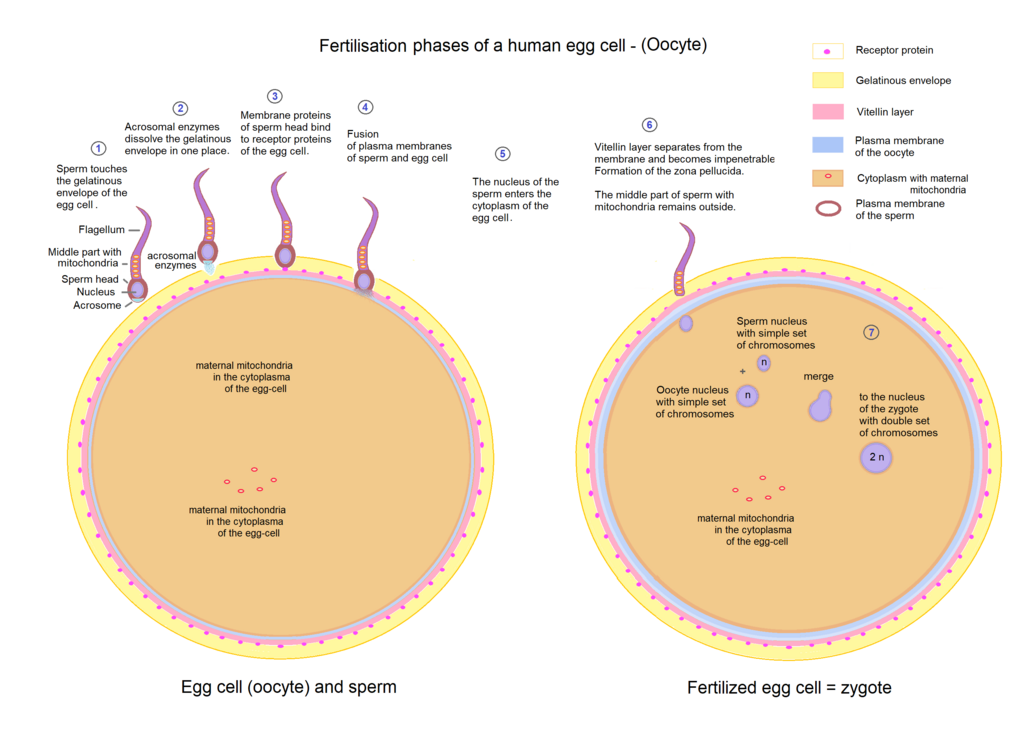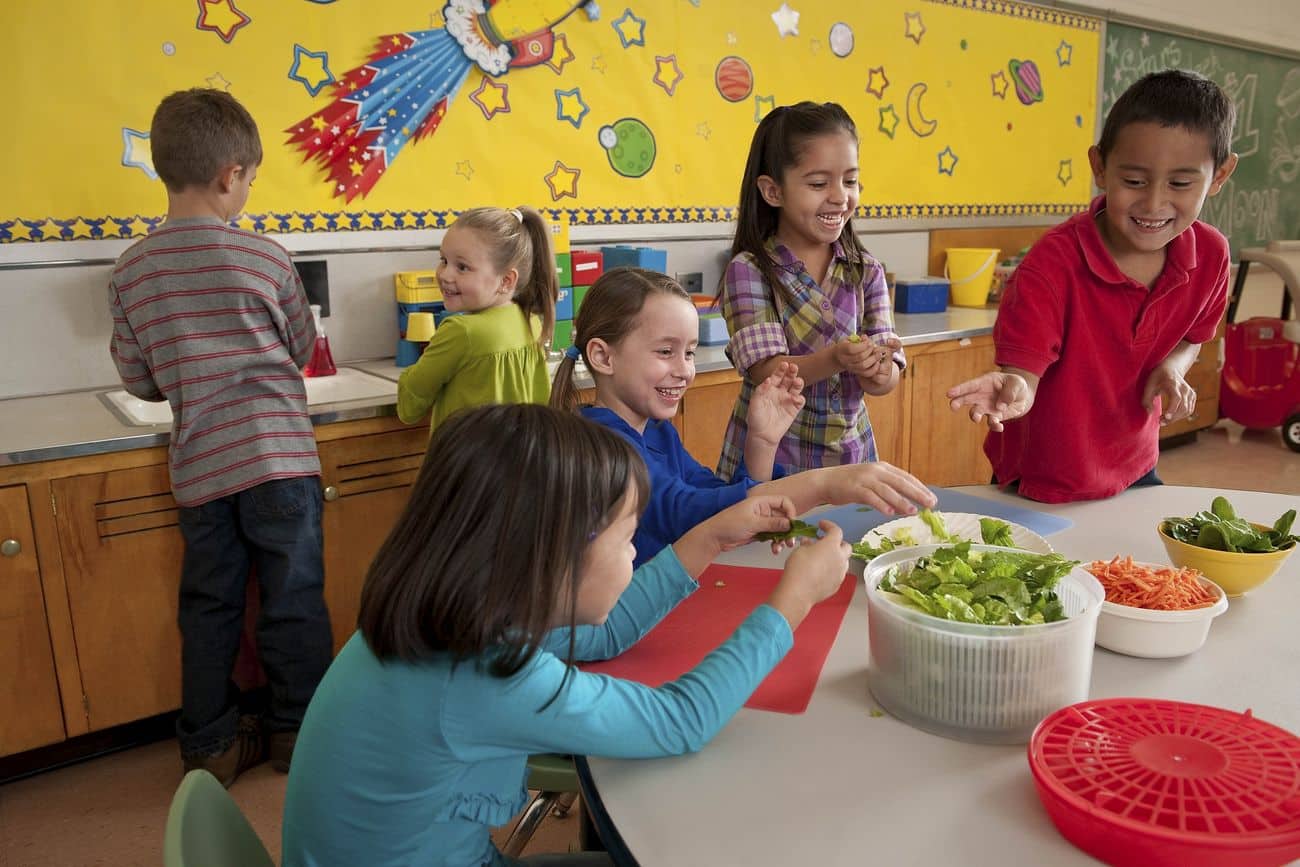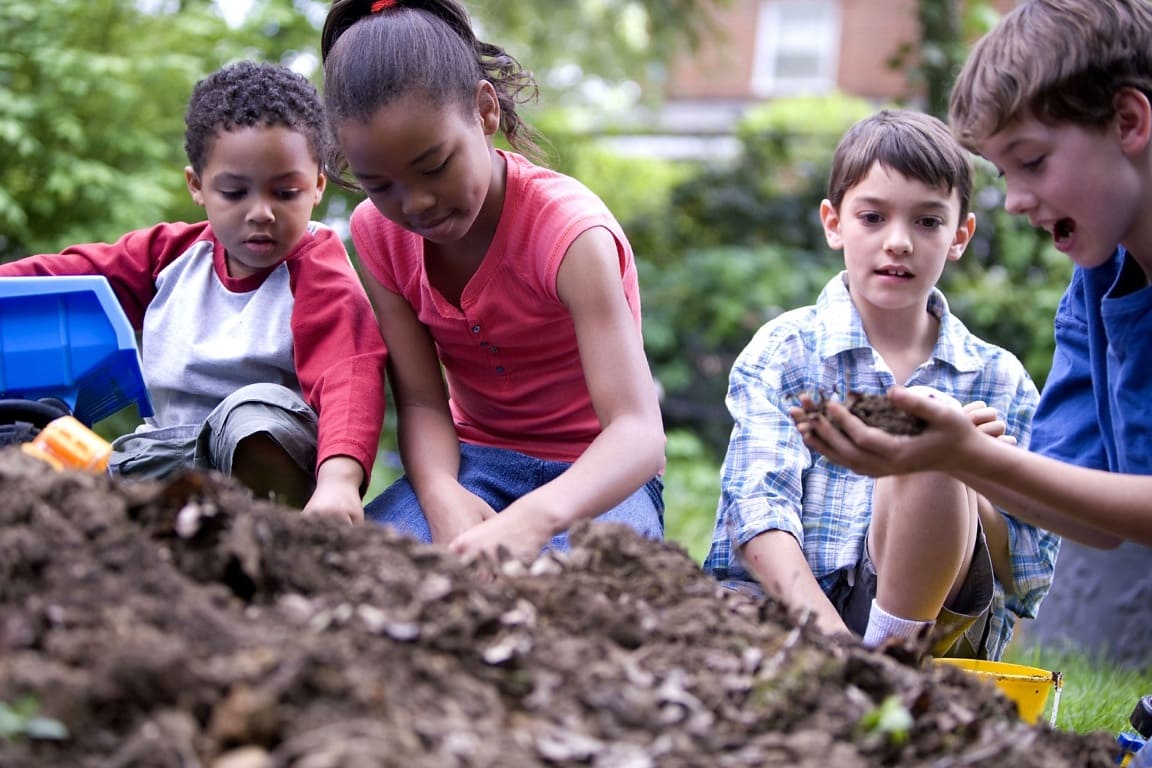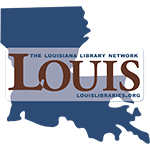Developmental Psychology: Lifespan Development
Topic outline
-
This course offers a life span survey of developmental changes (social, physical, and cognitive) from conception to death. Major questions addressed in the course include:
-- Is development due more to genetics (nature) or environment (nurture)?
-- Does development occur slowly and smoothly or do changes happen in stages?
-- Do early childhood experiences impact development most, or are later events equally important?
These topics will be approached from multiple viewpoints, particularly through the lens of the unique culture of Louisiana.
Upon successful completion of this course, the student will be able to meet the following course objectives:
The class week runs from Monday - Sunday. New materials will be released on Monday of each week. Discussion board responses should be made by 11:59 PM on Wednesday during the relevant week, with students continuing to respond to each other until Saturday. All other assignments and due dates/times will be posted; click on the assignment to see due date. Each assignment will be due by 11:59 PM on the due date. There may be corrections, changes, or further explanations of assignments. You must log on to Moodle at least every other day to ensure you have the most current information and participate as expected. I anticipate completing the readings and assignments will take approximately eight hours each week.Navigating the Course
This course is set up in Modules covering various topics, which may be accessed from the course navigation menu on the left or by scrolling below. Modules may be collapsed in the menu and the course's body to minimize scrolling. Each module includes the relevant chapters followed by various activities, which may include discussion forums, assignments, module tests, and other relevant activities as appropriate. Many items are required and may be marked as completed automatically when the activity has been submitted (the broken check box), but others will be marked as done by the student (the solid check box).
Please move through the items below and continue through the Learner Support and Getting Started modules before moving to Module 1. Be sure to check for announcements and due dates to stay on track.This course covers the following specific measurable outcomes and learning objectives. All assessments are aligned to these outcomes and objectives.
Course Learning Outcomes
When you complete this course, you will be able to:
1. Identify research findings, terminology, principles, and theories important in the various areas of human development and apply those through class activities
2. Explain, evaluate, and debate the major psychological theories in human development
3. Analyze the process of psychological, physical, and social development in key developmental periods
4. Express ideas clearly in writing through the completion of class assignments at the college level
Creative Commons Attribution license
This course and its contents by Bill Pelz, et al.; and Tremika Cleary and Dr. Cynthia Thomas, and editors: Angie Balius and Johannah White are licensed under a Creative Commons Attribution 4.0 International License by LOUIS: The Louisiana Library Network, except where otherwise noted.
-
-
-
This module contains all the items you should review and complete before you begin Module 1. Before moving on, be sure to:
- Check the News and Announcements Forum
- Read the Course Syllabus
- Introduce yourself to the class
- Read the instructions for the Q & A Forum
Good luck with the course!-
Use this forum to tell us a little about yourself and your interests. Some topic ideas:
- What is your field of study/research interest or concentration?
- What are you most interested in learning about in this class and why?
- Have you ever taken an online class before?
- Any other information you would like to share with your classmates, such as special interests or activities.
Post a picture! We look forward to meeting you.
-
Use this forum to ask questions about concepts, discussion forums, or assignments. This forum is designed so that students can help one another. When you ask a question, be a specific as possible so that you can get the help that you need. DO NOT ASK FOR ANSWERS in this forum; ask for clarity. While this forum is intended for students to help one another, I check this forum regularly to ensure that responses are correct. I will respond when when incorrect information is provided.
You may post at any time, and any student may respond.
Please keep in mind that others can see your posts, so do not post any personal information. If you have questions about your grade, please email your instructor directly. You can expect a response to emails within 48 hours.
- Check the News and Announcements Forum
-
Use the information in this module to customize the template to your needs. This module is currently hidden from students, and available for you to refer to throughout the semester.
-

(Jeanerette, Louisiana-Image Source: Family Reunion by Tremika Cleary licensed CC-BY-NC-SA)
Have you ever been curious about the natural evolution or life phases that encompass our existence? In this Human Development course, you will discover how human growth and changes occur throughout life. You will also learn how various aspects of culture play a critical role in one’s development, influencing physical, cognitive, and socio-emotional development. From our entrance, exit, and everything in between, discover exciting phenomena that can assist you professionally and personally to help you understand the human lifespan.
Upon completion of this module, you will be able to:
- Explain the study of human development. (CLO #1)
- Define physical, cognitive, and psychosocial development. (CLO #3)
- Differentiate periods of human development. (CLO #1)
- Analyze your location in the lifespan. (CLO #1)
- Critique stage theory models of human development. (CLO #2)
- Define culture and ethnocentrism and describe ways that culture impacts development. (CLO #1)
To achieve these objectives:
- Read the Module 1 Introduction
- Read Chapter 1 in Developmental Psychology and corresponding resources.
- Complete Assignment:
- Discussion Forum: What Stage of Human Development Are You In? (LO. 4)
Module Resources and Activities
Click on the links below to access or complete each item.
-
Explore the stages of human development from infancy to old age, including physical, cognitive, and socioemotional changes that occur throughout the lifespan.
You have to know.... What is your developmental psychology like? (n.d.). Www.youtube.com. Retrieved November 27, 2023, from https://youtu.be/mXkdP5K2mFo?si=rU4Vx5bK1kys69go
-

Source: Wikimedia.org, Courtesy of Sciencia58, 2019.
In this module, we will discuss concepts related to conception and heredity. We explore how fetal development is additive and varied, guided by the genetic material supplied by both biological parents. We will also look at how development typically proceeds and some causes of genetic abnormalities. Before going into these topics, however, it is important to emphasize the interplay between heredity and the environment. This chapter helps us understand why parental health is important during conception and pregnancy, how social support and reduced stress benefit a developing fetus, and why we are the way we are. As you consider some of your features (height, weight, personality, being diabetic, etc.), ask yourself whether these features result from heredity or environmental factors. Chances are, you can see how both heredity and environmental factors (such as lifestyle, diet, and so on) have contributed to these features.
Upon completion of this module, you will be able to:
- Examine our basic genetic endowment and explain how human development can go awry (CLO #2)
- Explain how the environment and genetics work together to determine human characteristics (CLO #2)
- Determine which human characteristics are significantly affected by heredity (CLO #2)
- Determine which human characteristics are significantly affected by the environment (CLO #2)
- Recognize and express the prenatal stages of development (CLO #2)
- Name the threats to the fetal environment and articulate what can be done about them (CLO #2)
To achieve these objectives:- Read the Module 2 Introduction
- Complete the following assignments:
- Read Chapter 2 (LO 1-6)
- Facts About Conception and Pregnancy (LO 5)
- Buying Eggs or Finding a Sperm Donor or Surrogate on the Internet (LO 6)
- Childbirth Related Policies (LO 4 & LO 6)
- Genetics, Prenatal Development, and Birth (LO 1-3)
Module Resources and Activities
Click on the links below to access or complete each item.
-
 Source: CherieJoyful on Flickr. CC-BY NC 2.0
Source: CherieJoyful on Flickr. CC-BY NC 2.0What you'll learn to do: Describe physical, cognitive, and socioemotional development in infants and toddlers.
John Locke argued that the human mind is a blank slate (tabula rasa) at birth and is filled with thoughts and knowledge as we experience life through the five senses. However, developmental theories have moved away from this notion. Newborns are equipped with basic reflexes such as crying, grasping, and suckling and are not empty-headed organisms Santrock (2019). As infants develop, innate abilities also develop and the worlds around infants play a major role in their development.Upon completion of this module, you will be able to:- Identify and explain major development milestones during infancy and toddlerhood. (CLO #1)
- Discuss developmental theories and concepts associated with infancy and toddlerhood. (CLO# 2)
- Explain the relationships that nature and nurture have on development during infancy and toddlerhood. (CLO #1)
To achieve these objectives:
- Read the Module 3 Introduction (LO 1)
- Read Chapter 4, Infancy in Developmental Psychology (LO 1-3)
- Complete the assignment and discussion forum post below. (LO 1-3)
Module Resources and Activities
Click on the links below to access or complete each item.
- Identify and explain major development milestones during infancy and toddlerhood. (CLO #1)
-
 Elementary school students making a salad by U.S. Department of Agriculture is licensed under CC-CC0 1.0
Elementary school students making a salad by U.S. Department of Agriculture is licensed under CC-CC0 1.0Early childhood may be an exciting time for children. Along with rapid physical growth, comes rapid socioemotional growth and development. Children are school-aged and spend a considerable amount of time away from home and their parents. Children are naturally curious during this time and seek to know and understand the ever-changing world around them.
Upon completion of this module, you will be able to:1. Identify and explain differences in physical, cognitive, and psychosocial growth and development patterns in early childhood. (CLO #2)
2. Summarize language development in early childhood. (CLO #3)
3. Describe three views associated with cognitive changes during early childhood. (CLO #3)
To achieve these objectives:
- Read the Module 4 Introduction
- Read Chapter 5 in Developmental Psychology. (LO 1-3)
- Complete the assignment and discussion forum below. (LO 1-3)
Module Resources and Activities
Click on the links below to access or complete each item.
- Read the Module 4 Introduction
-

Kids Playing by Cade Martin, CCBY 0
Middle and late childhood are periods of life that begin when children enter school and last until they reach adolescence. Think for a moment about children of this age that you may know. What are their lives like? What kinds of concerns do they express and with what kinds of activities are their days filled? If it were possible, would you want to return to this period of life? Why or why not? Early childhood and adolescence seem to get much more attention than middle childhood. Perhaps this is because growth patterns are slow currently, the id becomes hidden during the latent stage, according to Freud, and children spend much more time in schools, with friends, and in structured activities. It may be easy for parents to lose track of their children’s development unless they stay directly involved in these worlds. I think it is important to stop and give full attention to middle childhood to stay in touch with these children and to take notice of the varied influences on their lives in a larger world.
Upon completion of this module, you will be able to:- Explain differences in physical, cognitive, and psychosocial growth and development in middle-late childhood. (CLO #2)
- Describe development changes in parent-child relations during middle-late childhood. (CLO #3)
- Explain moral development in middle-late childhood. (CLO #3)
To achieve these objectives:
- Read the Module 4 Introduction
- Read Chapter 6 in Developmental Psychology. (LO 1-3)
- Complete the assignment and discussion forum below. (LO 1-3)
Module Resources and Activities
Click on the links below to access or complete each item.
-
(Image Source: Playing at the Beach by Tremika Cleary licensed CC-BY-NC-SA)
So many sudden changes and not enough time is what an individual can expect during adolescence. Not only does one experience physical, cognitive, and social-emotional transitions; their external relationships with parents and friends undergo some form of transformation. In this chapter, you will discover how these changes can impact how individuals think, feel, and interact with the world around them as they navigate this growth period.
Upon completion of this module, you will be able to:- Be familiar with adolescent physical, cognitive, and psychosocial development characteristics (CLO #3).
- Be familiar with the theoretical development stages during adolescence (CLO #1).
-
Understand how culture plays a role in adolescent development (CLO #3).
To achieve these objectives:
- Read the Module 6 Introduction
- Read Chapter 7 in Developmental Psychology and corresponding resources. (LO 1-3)
- Complete Assignment:
- Discussion Forum: What Are Your Experiences Growing Up as an Adolescence in Louisiana? (LO1)
Module Resources and Activities
Click on the links below to access or complete each item.
-
In this episode of Crash Course Psychology, Hank has a look at that oh-so-troublesome time in everyone's life: Adolescence! He talks about identity, individuality, and The Breakfast Club.
[CrashCourse]. (2014, June 23). Adolescence: Crash Course Psychology #20 [Video]. YouTube. https://www.youtube.com/watch?v=PzyXGUCngoU
-
Explore what we know— and still don’t know— about puberty and its effects on the body and brain. -- While we often talk about puberty’s effect on the body, what gets overlooked are the fascinating changes that happen in the brain. Puberty, in fact, begins in the brain and lasts as long as five years. And during this extended process, the brain undergoes its own transformation, thanks to estrogen and testosterone. Shannon Odell details what we know— and still don’t know— about puberty.
[TED-Ed]. (2022, December 20). What sex ed doesn’t tell you about your brain - Shannon Odell [Video]. YouTube. https://www.youtube.com/watch?v=deNGkzUlhZU
-
Intelligence comes in many forms. In this talk, Maximilian Park discusses his experience with emotional intelligence, the change it has affected in his life, and the impact it could have on students around the country. Maximilian Park is a senior at Palos Verdes Peninsula High School. This talk was given at a TEDx event using the TED conference format but independently organized by a local community.
[TEDx Talks]. (2018, April 25). Emotional Intelligence From a Teenage Perspective | Maximilian Park | TEDxYouth@PVPHS [Video]. YouTube. https://www.youtube.com/watch?v=MbmLNr89L-A
- Be familiar with adolescent physical, cognitive, and psychosocial development characteristics (CLO #3).
-

At this time, these are placeholders for future additions to the course. No midterm has been added.
In this module you will take your midterm exam OR submit your midterm assessment for this course. Read the instructions carefully and take note of any special submission guidelines.
Upon completion of this module, you will have:
- Read and viewed the midterm instructions
- Scheduled your exam with the proctoring service [if applicable, delete if not needed]
- Prepared for and submitted your midterm assessment [revise as needed]
To achieve these objectives:
- Read and view the contents of "Exam Information and Instructions" [if applicable, delete if not needed]
- Review the [midterm assessment] guidelines in your syllabus to make sure you are ready. Click on [Title of Assessment below] and follow the instructions.
- Log in to the proctoring service and take your exam. [if applicable, delete if not needed]
-
High school graduate (Lafayette, Louisiana) Courtesy of Tremika Cleary licensed CC-BY-NC-SA
Age Range: 18-29
You can find emerging and early adulthood somewhere between adolescence and adulthood. Emerging adulthood, what is that, you ask? According to research, as our societies advance, young adults take a little longer to accomplish specific tasks that help them become more independent during early adulthood. As a result, to highlight this phenomenon, emerging adulthood is a phase one would consider a “bridge” that helps one to transition into early adulthood successfully. In this chapter, you will discover how individuals navigate the worlds within them and around them during this stage.
Upon completion of this module, you will be able to:
- Be familiar with the characteristics of early adulthood physical, cognitive, and psychosocial development (CLO #3).
- Understand the concept of emerging adulthood and how it differs from adolescence (CLO #2).
- Be familiar with the theoretical development stages during early adulthood (CLO #1).
- Understand how culture plays a role in early adulthood development (CLO #3).
To achieve these objectives:
- Read the Module 7 Introduction
- Read Chapter 8 in Developmental Psychology: Early Adulthood and corresponding resources. (LO 1-3)
- Complete Assignment:
- Discussion Forum: Emerging Adulthood- "To Believe or Not to Believe" (LO 2)
Module Resources and Activities
Click on the links below to access or complete each item.
-
Explore how scientists define adulthood, and find out if there’s a specific age at which we reach maturity. -- Most countries recognize 18 as the start of adulthood by granting various freedoms and privileges. Yet there’s no exact age or moment in development that we can point to as having reached full maturity. If there’s no consensus on exactly when we reach maturity, when do we actually become adults? Shannon Odell shares how scientists define adulthood using stages of brain development.
[TED-Ed]. (2023, January 19). When are you actually an adult? - Shannon Odell [Video]. YouTube. https://www.youtube.com/watch?v=AESkozhaT4s
- Be familiar with the characteristics of early adulthood physical, cognitive, and psychosocial development (CLO #3).
-
Image Source: Three Sisters by Tremika Cleary licensed CC-BY-NC-SA
Age Range: 40-65
Can we say “adulting” at its prime? During Middle Adulthood, individuals cruising through this phase are solidified adults as they should have established a sense of interdependency. Meaning they have created a sense of self-reliance and sustainable connections with others, whether personally or professionally. However, there can be some significant shifts that can take place during this phase. For example, physical, cognitive, and psychosocial changes are the most obvious; thus, relationship roles also alter. In this chapter, you will discover how individuals in this phase navigate themselves and the world around them.
Upon completion of this module, you will be able to:
- Be familiar with the characteristics of middle adulthood physical, cognitive, and psychosocial development (C.O. #3).
- Be familiar with the theoretical development stages that take place during middle adulthood (CLO #1).
- Understand how culture plays a role in middle adulthood development (CLO #3).
- Be familiar with changes in relationship roles during middle adulthood (CLO #3).
To achieve these objectives:
- Read the Module Introduction
- Read Chapter 9 in Developmental Psychology and corresponding resources. (LO 1-4)
- Complete assignment:
- Discussion Forum: Caring for An Aging Parent or Caregiver (LO 4).
Module Resources and Activities
Click on the links below to access or complete each item.
-
One expert on aging wants to turn middle age stereotypes on their head. Life coach Barbara Waxman is raising awareness for what some call “Middlescence," which she defines as a transitional period between ages 45 and 65 where people have an increased desire to find or create greater meaning in life. Waxman joins "CBS This Morning" to offer tips on redefining happiness and living your best life.
[CBS Mornings]. (2019, April 30). "Middlescence": How to Welcome Middle Age, a Second Adolescence but with Wisdom [Video]. YouTube. https://www.youtube.com/watch?v=D6xJSLcyIkA
-

One final pull up. Source: Courtesy of Adam Cohn, Flickr.
Late adulthood (65-74 years) and elder adulthood (75 years old and beyond) are discussed together for this course. These years are often marked by significant life changes like retirement, searching for meaning in life, dealing with health decline, the death of loved ones, or grandparenthood. As with other developmental periods, this phase of life can be fulfilling, disappointing, or a combination of both.
Upon completion of this module, you will be able to:
- Define late adulthood. (CLO #1)
- Describe various theories of aging. (CLO #3)
- Compare primary and secondary aging. (CLO #2)
- Describe theories of aging. (CLO #3)
- Discuss theories describing psychosocial, physical, and cognitive development in late adulthood. (CLO #3)
- Classify types of elder abuse. (CLO #1)
To achieve these objectives:- Read the Module 9 Introduction
- Read and view the materials in the Module 9 Pressbooks book (LO 1-6)
- Complete the following assignments:
- Elderly Stereotypes (LO 1 & 5)
- What is Alzheimer’s Disease Video (LO 3)
- Video Project (LO 3 & 5)
Module Resources and Activities
Click on the links below to access or complete each item.
-

A grieving woman is seen crying beside a bed. Source: Claudia Wolff, (link opens in a new window) Unsplash license.
In this module, students will have the opportunity to explore their thoughts about death and death-related issues. Students will be able to identify the leading causes of death and will be introduced to different theories of grief. Information will also be presented about individual agency related to dignified deaths when euthanasia, passive euthanasia, and physician-assisted suicide is explored. They will also be able to distinguish among the purposes and philosophies of care provided by hospitals, palliative care, and hospices.
Upon completion of this module, you will be able to:- Identify the leading causes of death in the United States and compare them with those in Louisiana. (CLO 1)
- Describe different theories of grief. (CLO 2)
- Differentiate between palliative care and hospice. (CLO 1)
- Compare euthanasia, passive euthanasia, and physician-assisted suicide. (CLO 3)
- Characterize bereavement, mourning, and grief. (CLO 3)
To achieve these objectives:- Read the Module 10 Introduction
- Read Chapter 11 in Developmental Psychology (LO 1-5)
- Complete the assignment and discussion forum below:
- Understanding the Quest to Die With Dignity —and What It Means for Us All (LO 4
- Internet Survivor Support (LO5)
- How Grief Affects Your Brain and What To Do About It (LO 2)
- The 5 Stages of Grief + a giraffe (LO 2)
Module Resources and Activities
Click on the links below to access or complete each item.
-

*This is a placeholder for future directions and activities prepared for Finals Review Week.
Replace this text with a short module introduction in narrative form; provide context and instructor's perspective to review (prior knowledge), preview (highlights of the module), and motivate (relevance to students' personal and career goals). Avoid referencing textbook chapters, page numbers, or dates. To replace image, double click the image placeholder. Select 300–400 pixels wide, and update the description of image. Include attribution of your image (Title, Author, Source, License).
Upon completion of this module, you will be able to:
- Obj. 1 (C.O. #)
- Obj. 2 (C.O. #)
- Etc.
To achieve these objectives: [Edit these items to match your resources and activities.]
- Read the Module # Introduction
- Read and view the materials in the Module # Pressbooks book
- Read Chapter # in Textbook Title, Article Title, etc.
[Include all reading assignments here that are outside of Moodle. Be as
concise as possible. More information can be included in the
third-party section below, if necessary.]
- Complete the [specific activities in the module. Include all in the order you want them completed.]
Module Resources and Activities
Click on the links below to access or complete each item.
- Obj. 1 (C.O. #)
-
At this time, these are placeholders for future additions to the course. No final exam with directions has been added.
In this module you will take your final exam your final assessment for this course. Read the instructions carefully and take note of any special submission guidelines.
Upon completion of this module, you will have:
- Read and viewed the final assessment instructions
- Scheduled your exam with the proctoring service [if applicable]
- Prepared and submitted your final assessment
To achieve these objectives:
- Read and view the contents of the module book "Exam Information and Instructions" [if exam only]
- Review the final assessment guidelines in your syllabus to make
sure you are ready. Click on [Title of Assessment below] and follow the instructions.
- Log in to the proctoring service and take your exam. [if exam only]
